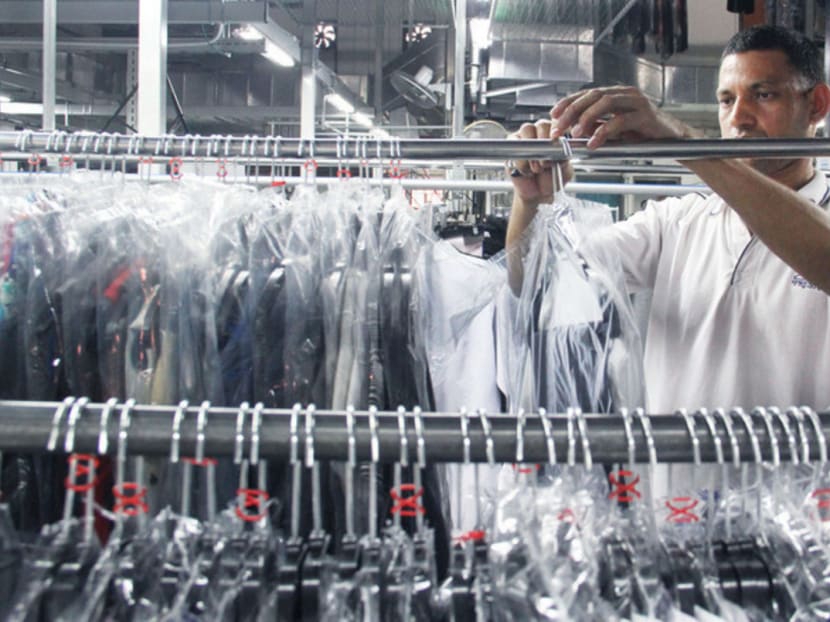SBF calls for a single consolidated agency for SMEs
SINGAPORE — Set up a single government body to champion the development of small and medium enterprises (SMEs), provide more financing and assistance and defer further planned increases in foreign worker levies — these were some of the recommendations for the coming Budget proposed by the Singapore Business Federation (SBF) to help the sector overcome surging business costs, negative productivity growth and the impact of the ongoing economic restructuring.
SINGAPORE — Set up a single government body to champion the development of small and medium enterprises (SMEs), provide more financing and assistance and defer further planned increases in foreign worker levies — these were some of the recommendations for the coming Budget proposed by the Singapore Business Federation (SBF) to help the sector overcome surging business costs, negative productivity growth and the impact of the ongoing economic restructuring.
Beyond these suggestions, the SME Committee (SMEC) under the SBF — which came up with 29 recommendations — is also calling for more to be done to help place SMEs at the centre of Singapore’s economic strategies, implement more targeted measures to help them grapple with the challenges of transformation and help them expand overseas.
At the halfway mark of Singapore’s economic restructuring, a massive gap remains between official targets and the reality on the ground.
In 2010, the Economic Strategies Committee set a target for Singapore to raise productivity by 2 to 3 per cent annually by 2020. Despite a slew of support schemes, this has proven hard to achieve: Productivity growth was flat in 2013 after falling 2 per cent in 2012. In the third quarter of last year, overall productivity shrank for the second consecutive quarter by 0.8 per cent after a 1.3 per cent slip in the second quarter.
Additionally, a target to double to 1,000 the number of globally competitive companies has also fallen short, with only an estimated five to eight firms per year reaching the S$100 million benchmark revenue goal over the past five years.
“Local issues such as labour costs and rental costs are still very pressing, and therefore we recommend that the Government introduce very targeted measures to help companies overcome these challenges. Productivity transformation is not going to be easy. You need not only the mindset, you need the resources,” Mr Lawrence Leow, chairman of the SMEC, said at a press briefing yesterday.
In a move that would involve multiple parties, the SMEC has proposed that a single government body be in charge of championing the industry’s needs, as compared with the current multi-agency approach.
“While the current multi-agency approach has served SMEs well, each agency tended to drive programmes based on its own mandate and key performance indicators,” the SMEC said.
“Anecdotal accounts ... have revealed SMEs’ confusion with the myriad of schemes and frustration at times when having to adopt a different approach when dealing with separate agencies.”
Mr Kurt Wee, president of the Association of Small and Medium Enterprises, said a single government authority for SMEs would centralise all SME assistance functions, as well as cut red tape and response time.
As part of its Budget recommendations, the committee is also proposing a restructuring loan scheme with a loan quantum of up to S$3 million to help SMEs with cash flow needs for restructuring. Mr Leow said many sectors such as construction or manufacturing will need “a couple of million” to do a complete transformation that involves automation or redesigning of workflow processes.
The SMEC noted that a survey last year found that average SME cash reserves fell 47 per cent from S$1.37 million in FY2010 to S$0.72 million in FY2013, indicating short-term liquidity risks. The committee also urged the Government to defer planned increases in foreign worker levies, considering that present policies have met their objectives of restricting foreign worker access and protecting local wages. It also proposed scrapping levies for S Pass holders.
It also urged the Government to extend the Productivity and Innovation Credit (PIC) Bonus scheme for another three years to 2018, to coincide with the extension of the PIC scheme.







